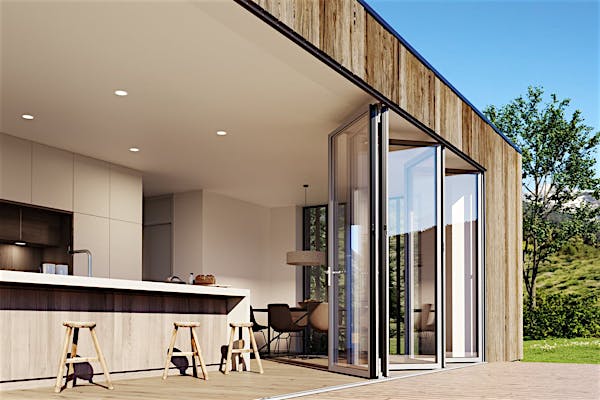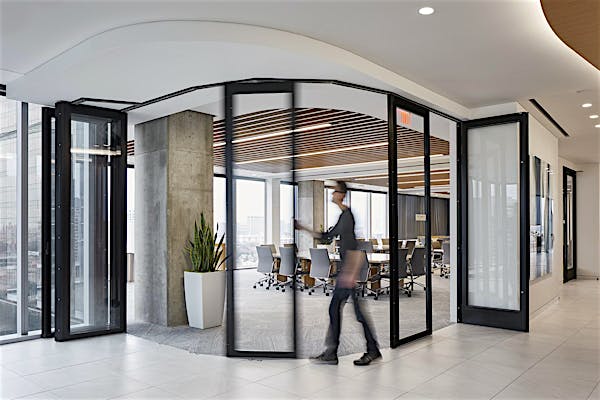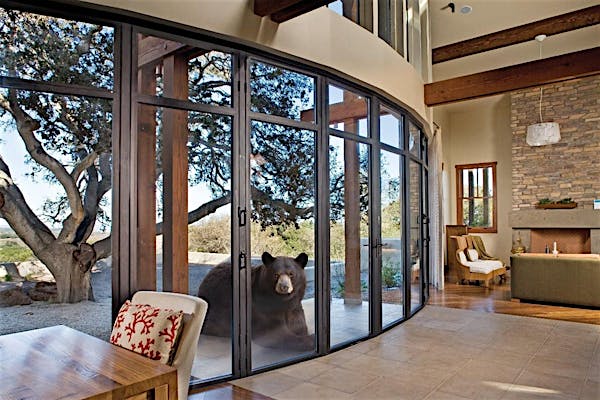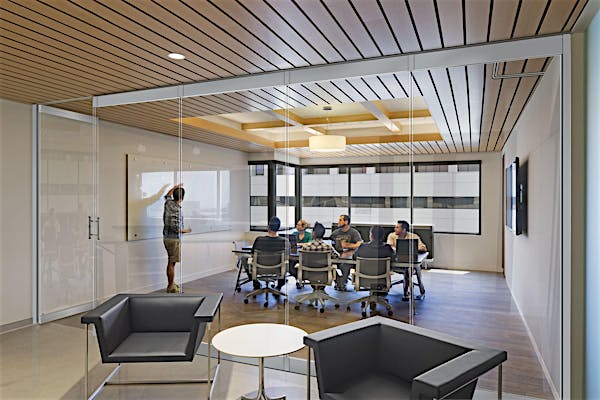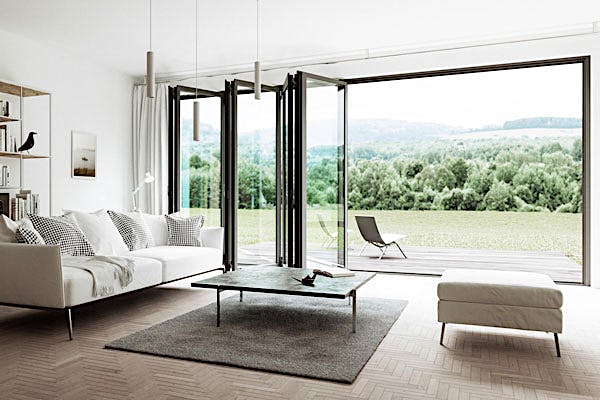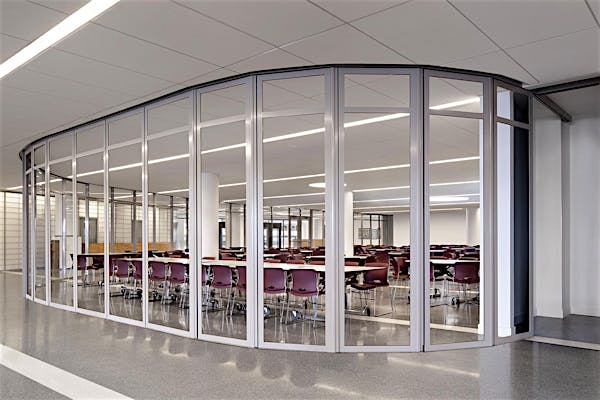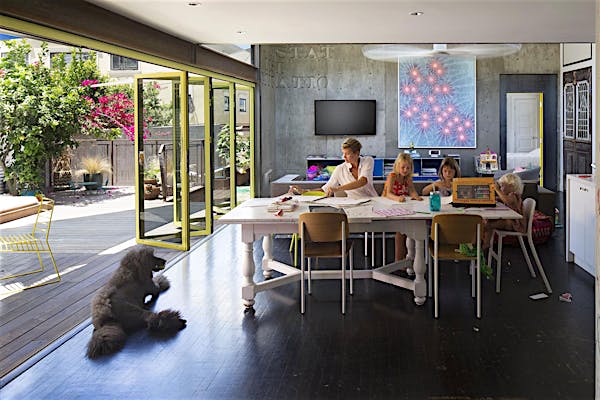
Acoustical comfort–the overall wellbeing of humans in a sonic environment–is an important aspect of developing productive work environments. As researchers and the public gain a better understanding about the effects of noise on humans, they are learning that sound control is essential and that any level of noise can be distracting.
Modern offices are often built as collaborative spaces void of partitions, walls, and doors. While this lends to a more open feel, full of natural light and ease-of-movement, contractors, architects, and designers must consider the way open workspaces affect office sound control and acoustics.
To help maintain acoustical comfort, a number of sound-rated building resources have been developed, such as acoustical insulation, sound-rated glass walls, doors, and flooring. Before we learn more about helpful sound-rated solutions, let’s take a look at ways sound impacts the workplace.
Noise Effects Worker Productivity
Office sound control is important for a number of reasons but most important is the way it affects worker productivity. In a Udemy research study, they found that 75 percent of workers feel more productive when distractions are reduced, especially sonic distractions.
Click Here for the full Workplace Distraction Report
Sound Transmission Class (STC) standards are set by The American Institute of Architects to help measure how certain building materials block sound. The higher the rating, the less likely it is for sound to be travel through a space. When designing office space, the STC ratings above 35 are ideal. With that in mind, here are some common office noises to consider when designing:
- Telephone rings
- People talking to colleagues and on the telephone
- Machinery such as printers
- HVAC systems
- Exterior noise such as construction, traffic, airplanes
- Music playing off devices or on a speaker system
- Kitchen noise such as coffee maker or microwave
- Devices such as cell phones, computer, keyboards, tablet
From that list, office workers feel that the most distracting sounds are our own voices, whether it’s a colleague on the phone, or people talking amongst themselves. Using sound-rated glass walls where appropriate and other solutions can aid with optimal office noise levels and higher productivity.
Noise Induces Stress
Even subtle noises can affect the human body, causing added stress and lack of motivation in office environments. Studies have found that the human body often responds to noise by producing adrenaline and cortisol to deal with perceived changes in environment.
While an office may not have a lot of loud, sudden noises, even low-level hums can cause the body to react. Without proper office sound control, this can begin to increase stress levels amongst workers. Increased stress may eventually lead to decreased productivity and morale, which is why it’s important to factor in sound control during construction or remodel.
How to Improve Office Sound Control
Improving the sound ratings of offices is of particular interest as workspaces shift towards a more open concept. While this may contribute to more social, collaborative work environments, it can be more challenging to control sound. Here are a few tips for making sure offices are set up for success and productivity.
Create Designated Quiet Spaces
Much like a sleeper car on the train or a library, this is a place where employees can go when they need somewhere quiet to work and focus better. These spaces are designed for optimal solitary work or business phone calls. Adding these spaces into an office gives workers the option to work in an environment conducive to their work style.
One way to create these spaces is with sound-rated frameless glass walls. While much of the workspace remains open, adding frameless stacking glass doors, folding glass doors, or stationary glass walls along the periphery of the office allows for privacy and sound control, in addition to maintaining visibility and an open feeling.

Design Flexible Work Environments
Whether a business is growing and needs options for additional offices or desks, or they need optional meeting space, frameless glass walls provide an excellent, sound-rated solution.
Operable glass walls provide office sound control between meeting rooms, offices, kitchen, and workspace, or any other uniquely dedicated spaces you want to create. Quality glass walls will offer a higher STC rating and include folding or stacking options that accommodate the uniqueness of any office.
Some systems have options for incorporated swing doors, acoustic glass doors, and sound laminated glass that improve STC ratings even further.
Increase Acoustical Privacy in Your Space
With the NanaWall PrivaSEE™ system, you don't have to sacrifice the elegant design of a modern office for sound privacy because it offers a frameless, movable, sound-rated option to suit any space. With an STC rating of 36, PrivaSEE™ has a higher rating than most fixed glass partitions. Whether you’re designing an innovative, modern office or a residential space, NanaWall’s knowledgeable representatives can help you find the best sound control solution.
Contact us to learn more about NanaWall innovative glass wall systems.
